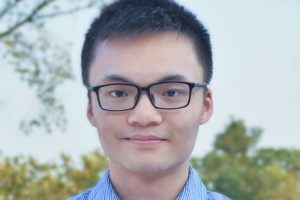
Abstract: Phase separation, a fundamental concept in chemical engineering, underpins a wide range of phenomena from the formation of membraneless intracellular compartments to the dynamics of lithium-ion battery materials, which play crucial
roles in diseases and battery lifespan. Unlike oil and water, however, phase separation in these systems is often complicated by chemomechanical coupling, nonequilibrium activity, and material heterogeneity.
In my talk, I will delve into how I navigated these complexities to uncover new insights into three distinct systems. I begin by presenting a novel computational approach to elastocapillarity – the interplay between elastic and capillary forces, in the cell nuclei, where liquid-liquid phase separation shapes the structure of the chromatin networks. Next, I will highlight my discovery of novel collective behaviors in active systems such as bacteria and active colloids, emerging from the interplay between phase separation due to self-propulsion and movements along chemical gradients. Lastly, I’ll discuss my work in using physics-informed machine learning to extract reaction kinetics and heterogeneity from images of reactive particles in battery electrodes, shedding light on their role in controlling phase separation.
Looking ahead, the innovative theory and computational methods I developed for modeling fluid-solid interaction, active systems, and data-driven discovery hold immense potential in elucidating and harnessing the power of living systems and energy materials.
Bio: Postdoctoral Research Associate, Department of Chemical and Biological Engineering and Omenn-Darling Bioengineering Institute, Princeton University. Hongbo Zhao is PBI2 Distinguished Postdoctoral Fellow in the Department of Chemical and Biological Engineering and Omenn-Darling Bioengineering Institute at Princeton University, working with Professors Cliff Brangwynne, Sujit Datta, and Andrej Košmrlj. He completed his PhD in Chemical Engineering at MIT advised by Professor Martin Bazant and holds a BS in Chemical Engineering from Tsinghua University. His research interests encompass the use of theory, computation, and data analytics in close collaboration with experimentalists, targeting pivotal challenges in chemical and biological engineering. His PhD research focused on elucidating the physics of energy materials for lithium-ion batteries and data-driven discovery of governing equations from experimental images. Currently, he studies the biophysics of liquid-liquid phase separation in living cells and the collective behavior of active matter, supported by the Princeton Bioengineering Initiative – Innovators Distinguished Postdoctoral Fellowship.